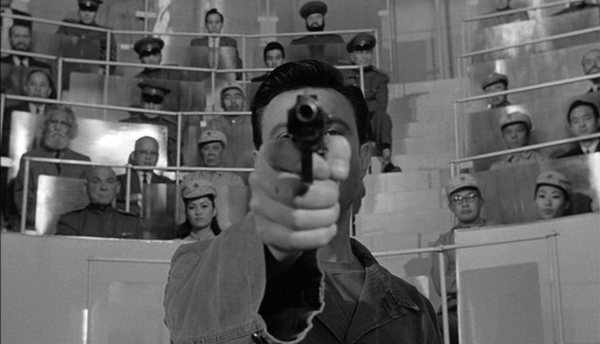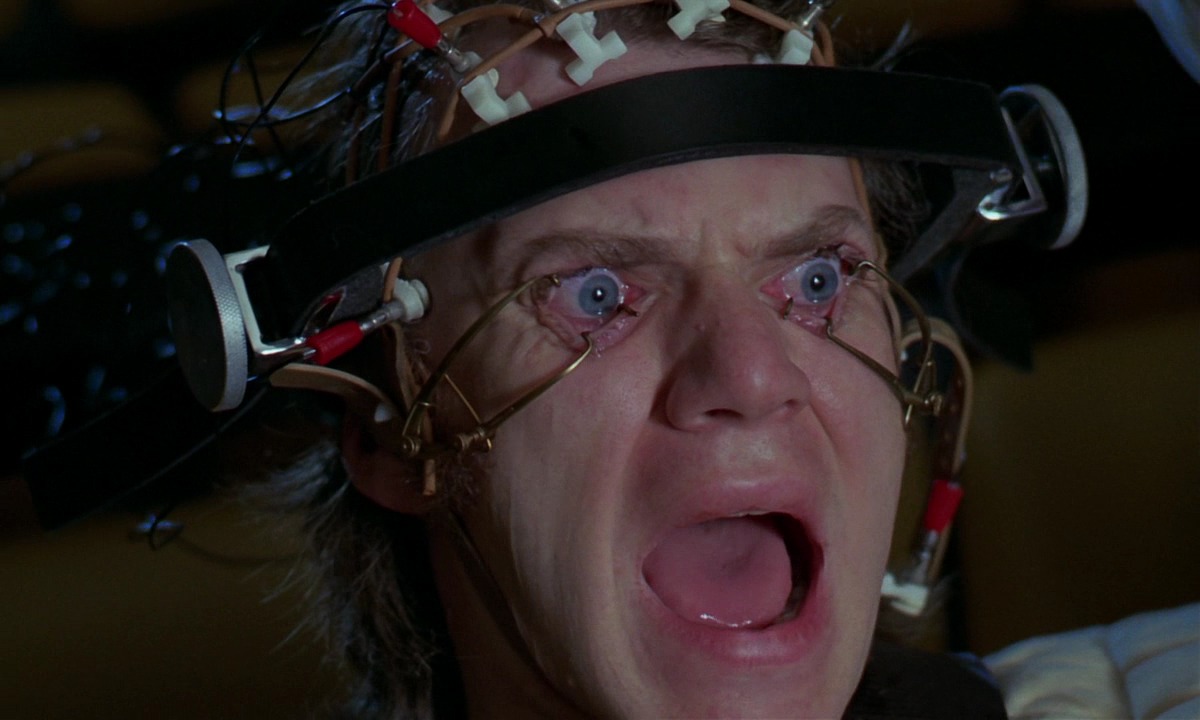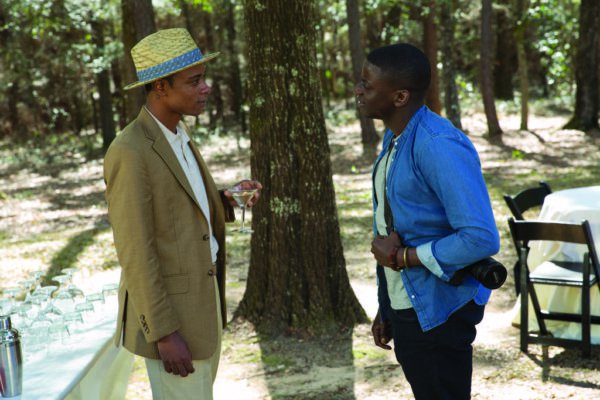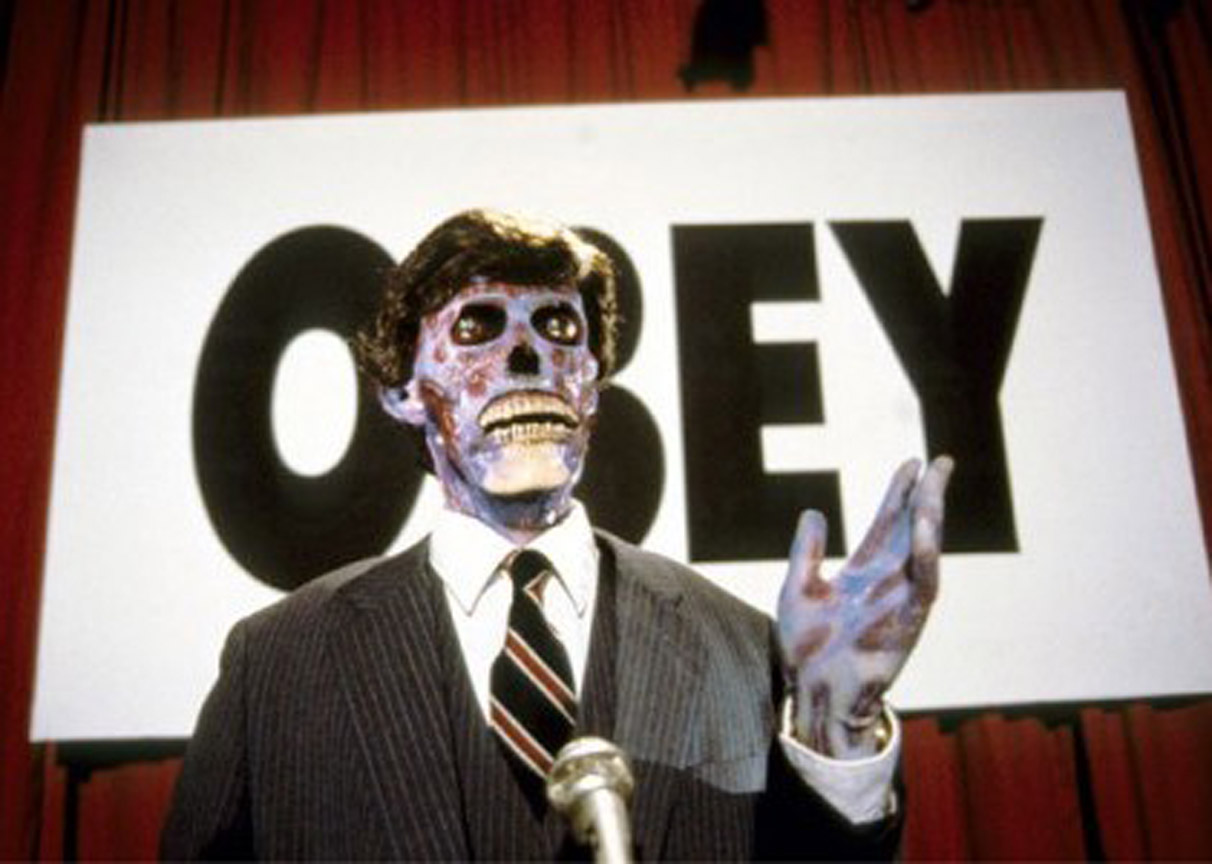5. Upstream Color (2013)

Shane Carruth’s Upstream Color, is an otherworldly experience that will make the right kind of audience absolutely ecstatic and frequently fighting tears of joy and wonder when not wholly hypnotized by its visual versification and bold narrative.
Amy Seimetz shines as Alex, our put-upon protagonist who finds herself brainwashed into emptying her bank account by a thief (Thiago Martins) who uses a combination of drugs, parasites, and bizarre hypnagogic neuro-linguistic-type programming to dupe her; control her mind, liquidate all her assets and empty her bank accounts.
Alex eventually regains herself and learns she’s not the only one who has been manipulated in this way to similar dubious ends. Drawn to Jeff (played by Carruth), the two are similarly uncertain of what they lost through their mind-meddling ordeal but, as their lives spiral and entwine, the film, like an amorous Möbius strip, outshines itself, and its heart reaches a hard fought and rather miraculous crescendo.
The artistry on hand is wondrous, with sequences of such aching, ingenious elegance. Upstream Color ranks high as one of the most transformative and spellbinding cinematic sci-fi experiences you’re likely to have.
4. The Manchurian Candidate (1962)

This neo-noir thriller from legendary action/suspense director John Frankenheimer is an inventive and sportive actioner. Technically dazzling thanks to Ferris Webster’s tight editing––the pace and progress is key––and Angela Lansbury’s nasty Mrs. Iselin (she pretty much steals the show from Frank Sinatra’s uneven platoon commander Captain Bennett Marco), The Manchurian Candidate takes some risks as it makes demands on audience expectations, and it mostly pays off, too.
Without getting into any spoilers, the film, adapted from Richard Condon’s 1959 bestseller, focuses on the brainwashing of a member of a prominent right-wing political family, making him an unwitting assassin in an international conspiracy.
Frankenheimer wisely injects satire and cynical black humor in this menacing movie that many deem a classic. For my money, this film lacks the dazzling go-for-broke bravura of Frankenheimer’s Seconds (1966), but Sinatra fans will love it, and there’s enough exciting and cleverness to make The Manchurian Candidate something of a mind-bender with loads of action and emotion, not to mention it’s a film and a premise which has made a considerable impact on pop culture.
3. A Clockwork Orange (1971)

A dystopian crime saga that brought the term “ultra-violence” to the mass cult, Stanley Kubrick’s controversial A Clockwork Orange makes a meal out of the Anthony Burgess source novel and results in a film you either love or hate but will certainly never forget.
In a crime-addled futuristic England a young thug named Alex (Malcolm McDowell) leads a gang of volatile youths, “droogs”, on a crime spree involving theft, rape, and murder, all to the keys of Ludwig van Beethoven.
Once in police custody Alex undergoes the Ludovico technique, a nasty brand of aversion therapy/mind-control that may or may not cure him and society at large should it all play out accordingly.
While Kubrick’s film showcases the technical skills that made him a legend, and the Moog-saturated score is first-rate, the lengthy scenes of abuse, misogyny, and mayhem may prove too much for sensitive viewers, and certainly portraying a rapist home-invader as sympathetic brainwash victim will not wash well with many. If these caveats can be set aside A Clockwork Orange is an iconic, thought-provoking, and outrageous spectacular. Chilling, hypnotic, blackly humorous and accusatory, it’s a nightmare worth experiencing, appreciating, and pondering aloud.
“Goodness is something to be chosen. When a man cannot choose he ceases to be a man.”
2. Get Out (2016)

Intelligently satiric, incredibly horrific, profoundly funny, and deeply resonant for anyone who thoughtfully considers the issue of race in North America, Jordan Peele makes an outstanding directorial debut with Get Out (which he also wrote).
Riffing on Stanley Kramer’s Guess Who’s Coming to Dinner (1967), Chris Washington (Daniel Kaluuya), with some well-placed reservations, reluctantly but good-naturedly accompanies his new girlfriend Rose Armitage (Allison Williams) for a weekend in the country with her upscale folks (Catherine Keener and Bradley Whitford). Knowing that the only other African Americans within screaming distance will be the Armitage’s servants, it’s no wonder that Chris is nervous about how Rose’s family will receive him, even knowing that they are liberal-minded, educated, and easy-going.
“The thing Get Out does so well – and the thing that will rankle with some viewers – is to show how, however unintentionally, these same people can make life so hard and uncomfortable for black people,” wrote The Guardian’s Lanre Bakare. “It exposes a liberal ignorance and hubris that has been allowed to fester. It’s an attitude, an arrogance which in the film leads to a horrific final solution, but in reality, leads to a complacency that is just as dangerous.”
Get Out is great as an uncomfortable comedy, but it excels at social commentary and reconstituted horror movie hyperbole. Keener’s downright cruel manipulation of Chris, and her NLP brainwashing/mind-control maneuvers up the horror, making something as innocuous as a spoon stirring a cup of tea into nightmare fuel.
Funny, frightening, and perpetually thought-provoking, Peele expertly provides a slow-build with some great twists, palatable payoffs, and plenty of wit. This is an excitedly ambitious film, and a poignant one.
1. They Live (1988)

In Martin Scorsese’s summation, “They Live is one of the best films of a fine American director,” and who are we to disagree with so knowledgeable a cineaste?
Like a frenzied crash course in semiotics, media manipulation, and mind-control, They Live is a politically subversive B-movie combining horror and sci-fi with hair-raising results. Adapting Ray Nelson’s short story “Eight O’Clock in the Morning”, about mass alien hypnosis duping humanity via TV commercials, radio, and print media, Carpenter also steeps the proceedings in satire and casts WWF wrestler “Rowdy” Roddy Piper as John Nada, our two-fisted hero.
Nada is sympathetic and relatable as a blue-collar drifter trying to get by when he stumbles upon a pair of sunglasses that breaks the alien signal allowing their hidden messages to be visible––dollars bills suddenly read “THIS IS YOUR GOD”––along with their hidden-in-plain-sight swarms, secretly integrated amongst us. “You know, you look like your head fell in the cheese dip back in 1957,” quips Nada to an alien, giving up his element of surprise before he even knows the stakes.
They Live requires a little forgiveness from the audience as its plot holes are many, and leaps in logic are necessary to ignore as well (that ending for instance, is a little of a let down), but the film’s a shit ton of fun if you surrender to it, and Piper’s back-alley brawl with Keith David is a highlight, and certainly one of the longest and most mirthful fist fights in movie history, too. A can’t miss cult classic that becomes more relevant with each passing year.
“Either put on these glasses or start eating that trash can.”
Author Bio: Shane Scott-Travis is a film critic, screenwriter, comic book author/illustrator and cineaste. Currently residing in Vancouver, Canada, Shane can often be found at the cinema, the dog park, or off in a corner someplace, paraphrasing Groucho Marx. Follow Shane on Twitter @ShaneScottravis.